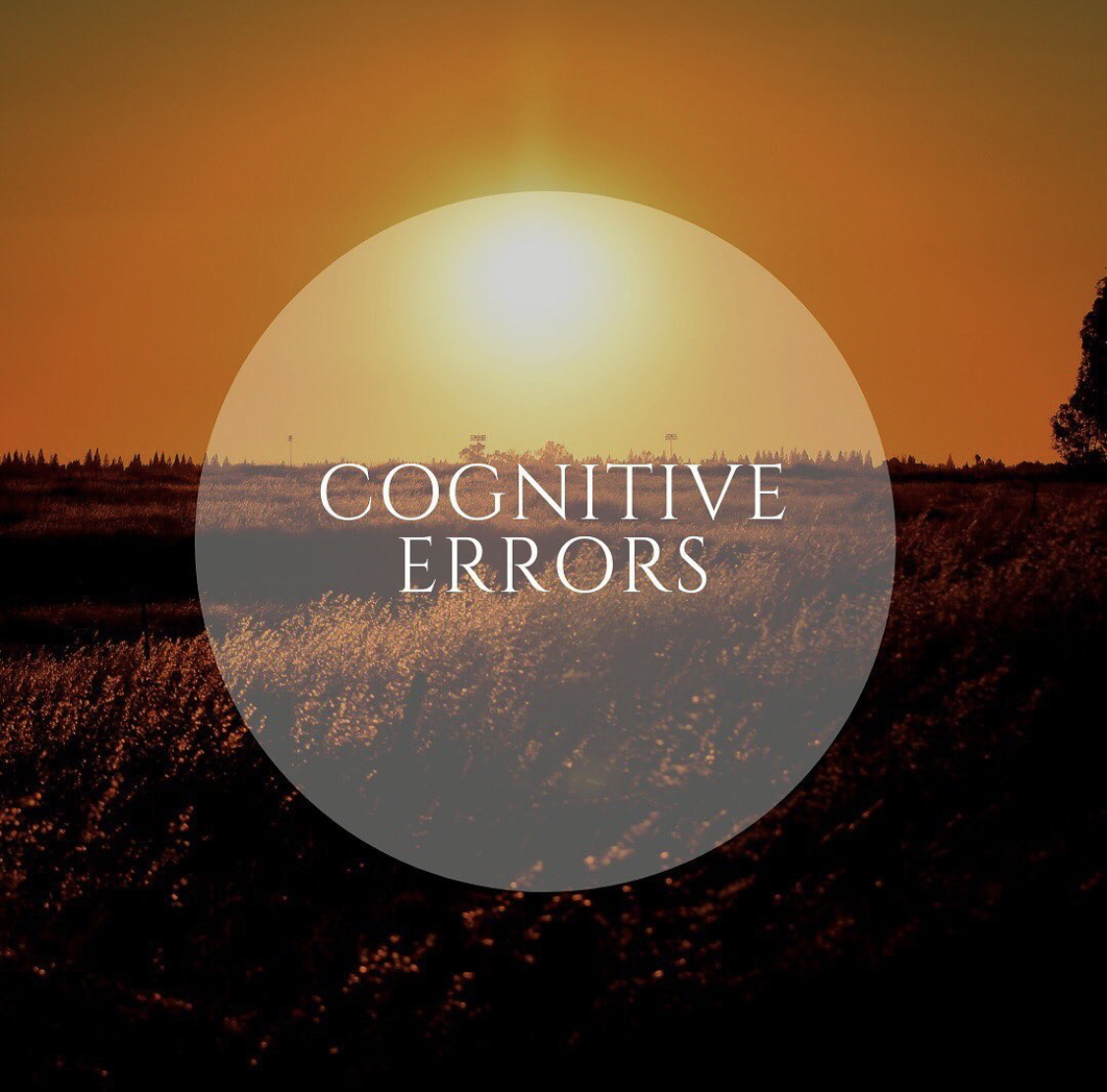Cognitive Errors
Have you ever heard of cognitive errors? What about thought distortions? Stinkin' thinkin'? These terms refer to a psychological process that each of us use, which impacts the way we perceive and interpret the events in our lives! Sometimes we engage in these thought processes as a defense mechanism, while others may use them maliciously.
There are several different categories, or types, of cognitive errors. There are general thinking errors, which many of use, emotional regulation errors, and errors that some psychologists call "criminal thinking errors." The reason some refer to them as criminal thinking errors is because they are often used by those who have committed and/or have been found guilty of a crime. But these can also be found among perpetrators of violence and abuse within the community!
Typically there are eight criminal thinking errors that are discussed: mollification, sentimentality, entitlement, power orientation, cutoff, cognitive indolence, super-optimism, and discontinuity.
- Mollification: A person will use mollification to rationalize and deny the harm they have caused another person. They will divert blame by questioning the motive or the role of the victim.
- Sentimentality: A person will use sentimentality to compartmentalize the "good" side from the "bad" side of oneself. The person may be hyperfocused on things they are sentimental about (i.e., their kids) in order to release themselves of, or to avoid, taking responsibility for their harmful actions. They may try to use a "good deed" to over-shadow or hide their harmful behaviors.
- Entitlement: This is when a person makes everything about his/her own wants. For example, "My thoughts, feelings, wants, needs are more important than your thoughts, feelings, wants, and needs." They will attempt to get their wants and needs met anyway possible, regardless of the impact it may have on others. This can often be with violence or coercion.
- Power Orientation: People will use this when they view others as weak/inferior, and themselves as strong or superior. They use the perceived weakness as a tool to exploit, take advantage of, and control the other person. When someone uses this weakness to gain control and divert responsibility, it is a tactic called power thrusting.
- Cuttoff: People are using cutoff when they ignore responsible action, and refuse to acknowledge the possible consequences of their actions. As I tell the men I work with, this is when someone gets a bad case of "the fuck-its." It tends to resonate with them for some reason :)
- Cognitive Insolence: This is lazy thinking. A person engages in this type of thinking when they appear to go against the grain, sort of speak. They get bored easily and push the societal limits to achieve their goals or wants in the quickest, easiest way. It is cutting corners, essentially.
- Discontinuity: People experience discontinuity when they lose sight of their goals by getting distracted by other, less important things. It is falling back into old habits and using justification and rationalization for doing so.
- Super-Optimism: Super-optimism oftentimes comes off as arrogance, and perhaps even narcissism at times. When someone is engaging in this thinking error, they think (and fully believe) they are absolutely invincible and exempt from the rules and consequences of the law (or societal norms). These people believe that if it worked before, it will work time and time again, with each time reinforcing their belief they will "never get caught," even though the probability hasn't changed.
What are your thoughts? Do any of these sound familiar?
